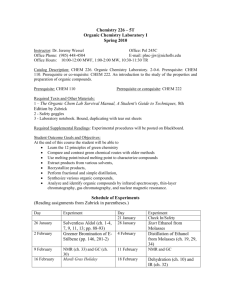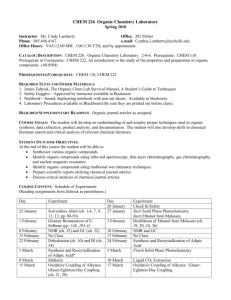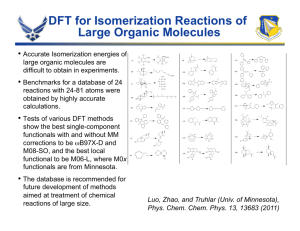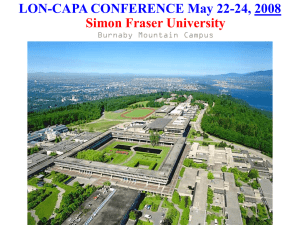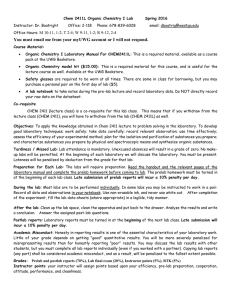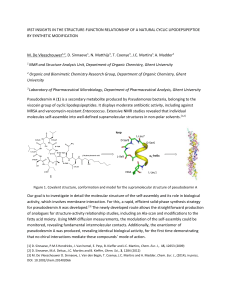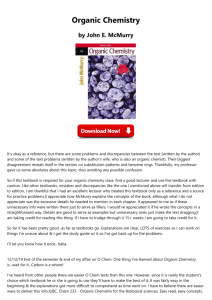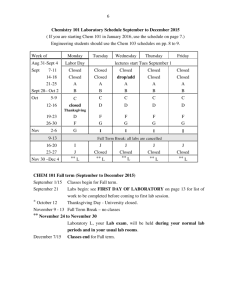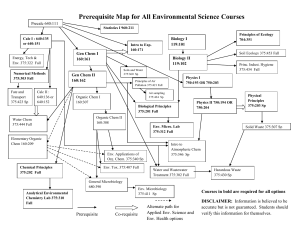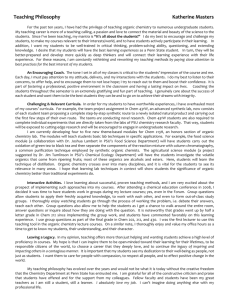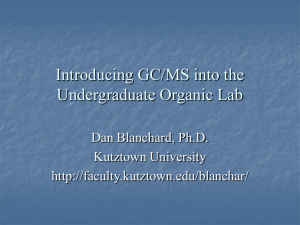Chemistry 226 Organic Chemistry Laboratory I 1 – The Organic
advertisement
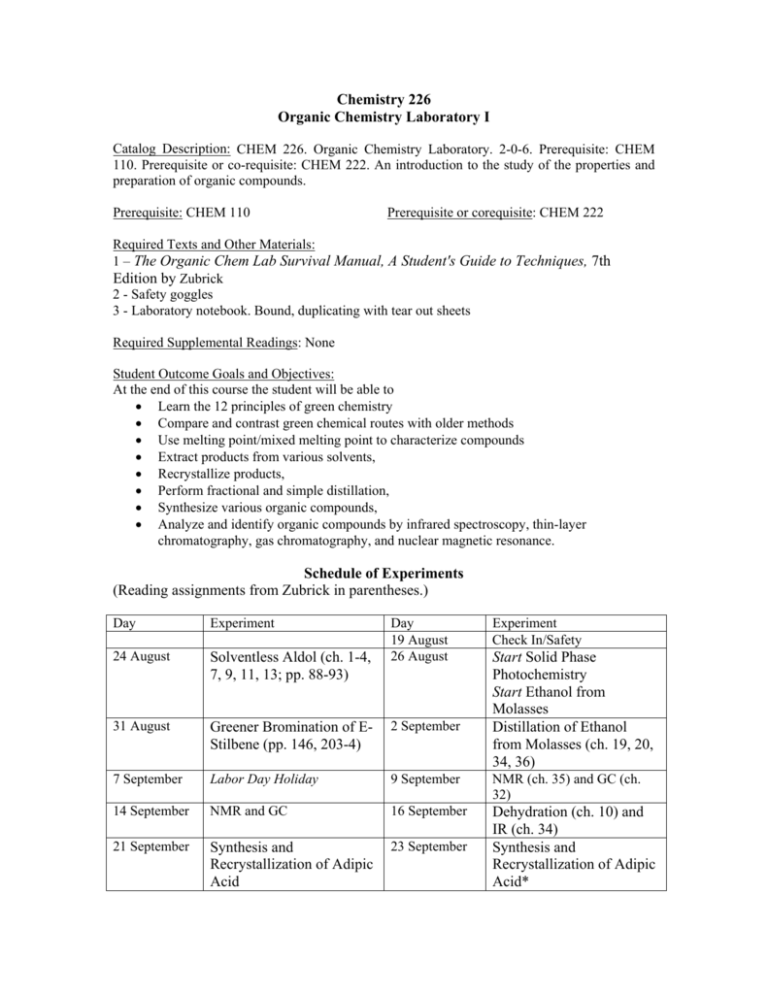
Chemistry 226 Organic Chemistry Laboratory I Catalog Description: CHEM 226. Organic Chemistry Laboratory. 2-0-6. Prerequisite: CHEM 110. Prerequisite or co-requisite: CHEM 222. An introduction to the study of the properties and preparation of organic compounds. Prerequisite: CHEM 110 Prerequisite or corequisite: CHEM 222 Required Texts and Other Materials: 1 – The Organic Chem Lab Survival Manual, A Student's Guide to Techniques, 7th Edition by Zubrick 2 - Safety goggles 3 - Laboratory notebook. Bound, duplicating with tear out sheets Required Supplemental Readings: None Student Outcome Goals and Objectives: At the end of this course the student will be able to • Learn the 12 principles of green chemistry • Compare and contrast green chemical routes with older methods • Use melting point/mixed melting point to characterize compounds • Extract products from various solvents, • Recrystallize products, • Perform fractional and simple distillation, • Synthesize various organic compounds, • Analyze and identify organic compounds by infrared spectroscopy, thin-layer chromatography, gas chromatography, and nuclear magnetic resonance. Schedule of Experiments (Reading assignments from Zubrick in parentheses.) Day Experiment Day 19 August 26 August Experiment Check In/Safety 24 August Solventless Aldol (ch. 1-4, 7, 9, 11, 13; pp. 88-93) 31 August Greener Bromination of EStilbene (pp. 146, 203-4) 2 September 7 September Labor Day Holiday 9 September NMR (ch. 35) and GC (ch. 32) 14 September NMR and GC 16 September 21 September Synthesis and Recrystallization of Adipic Acid 23 September Dehydration (ch. 10) and IR (ch. 34) Synthesis and Recrystallization of Adipic Acid* Start Solid Phase Photochemistry Start Ethanol from Molasses Distillation of Ethanol from Molasses (ch. 19, 20, 34, 36) 28 September Finish Solid Phase Photochemistry 30 September Review 5 October 12 October Midterm 7 October 14 October Liquid CO2 Extraction Oxidative Coupling of Alkynes: GlaserEglington-Hay Coupling 21 October Friedel-Crafts Reaction: Acetylation of Ferrocene* Biodiesel 19 October Oxidative Coupling of Alkynes: GlaserEglington-Hay Coupling (ch. 21, 28) Friedel-Crafts Reaction: Acetylation of Ferrocene 26 October Electrophilic Aromatic Iodination 28 October 2 November Microwave Synthesis of 5,10,15,20Tetraphenylporphyrin (ch. 29) Combinatorial Chemistry2 4 November Microwave Synthesis of 5,10,15,20Tetraphenylporphyrin 11 November Nucleophilic Substitution of Fabric Dyes1 Review Thanksgiving Holiday 18 November 25 November Final Thanksgiving Holiday 9 November 16 November 23 November 30 November Course Content: 1freshly washed 100% cotton material or T-shirt required by each student 2 samples require 24 hours incubation so each student will be required to return the next day (not class day) to view the plates Method of Evaluation: All students will perform experiments using proper safety practices. Notebook: 25 points/experiment 14 experiments 350 points *Formal reports on adipic acid, acetylferrocene (50 pts. each) 100 pts Midterm Exam 100 points Final Exam 100 points 650 points Grades will be determined using the following scale: A: 90-100 B: 80-90 C: 70-80 D: 60-70 F: <60
